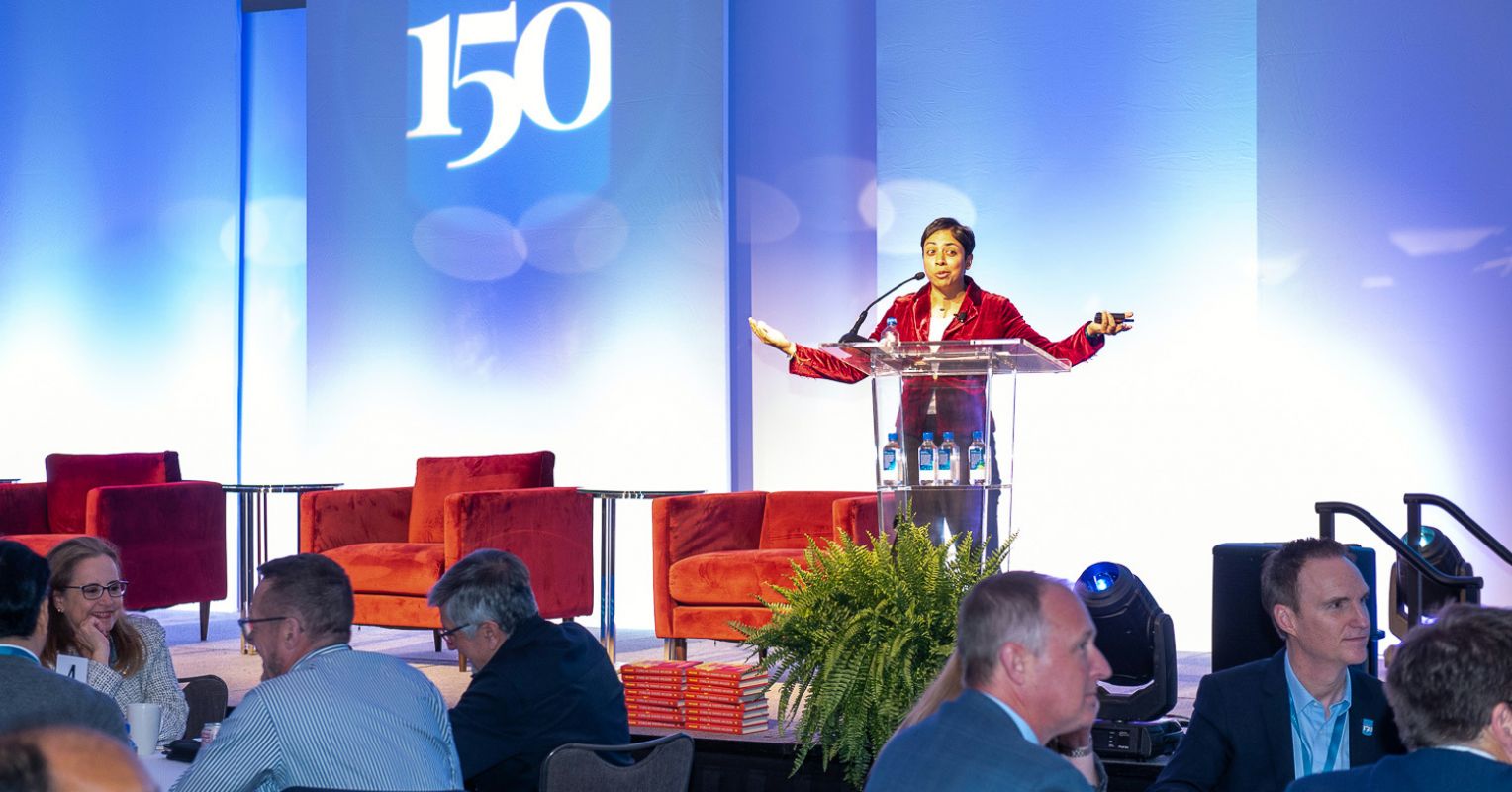#organizational-culture
#organizational-culture
[ follow ]
fromdzone.com
3 days agoFrom Mechanical Ceremonies to Agile Conversations
Let's stop pretending. Your Daily Scrum is a status report. Your Sprint Planning confirms decisions that a circle of people made last week without you. Your Retrospective surfaces the same three issues it surfaced six months ago, and nothing has changed. Your Sprint Review is a demo followed by polite applause, before everyone happily leaves to do something meaningful. You know this. Everyone knows this. And yet tomorrow morning, you'll do it all again.
Software development
Business
fromLondon Business News | Londonlovesbusiness.com
6 days agoThe Emperor's New Clothes: Why organisations stay silent - London Business News | Londonlovesbusiness.com
Smart, well-meaning people often maintain flawed ideas by remaining silent and conforming because honesty seems riskier than complicity.
fromFast Company
6 days agoWhen leading teams, the obvious isn't as obvious as you think
My daughter, Ivy, recently joined a swim club. As a former competitive swimmer, it's been a delight to witness. Every time I take her to practice, I feel a wave of nostalgia that reminds me of all the many years I spent in the pool and all the many teammates I collected along the way. It excites me to think that she, too, will have her own experiences and life lessons, just as swimming taught me.
Business
fromSun Sentinel
2 weeks agoChris Perkins: Dolphins GM Jon-Eric Sullivan's No. 1 job - close Club Mike
MIAMI GARDENS - I hope Dolphins owner Stephen Ross asked new general manager Jon-Eric Sullivan one question during his interview: "What did you think of this franchise's 2023 season?" Sullivan, whose hiring isn't yet official, needs to have said, "It was a huge disappointment, and a borderline failure." If Ross heard anything else he should have kicked Sullivan out of his office and informed him that such a participation-trophy mentality isn't welcome to the new-era Miami Dolphins.
Miami
fromFast Company
3 weeks agoCulture is a company's greatest cheat code. So why do so many leaders struggle to crack it?
Culture eats strategy for breakfast. We've all heard this misattributed Peter Drucker quote and instinctively understand the disproportionate influence culture can have on an organization's business. However, if you asked five people to define organizational culture, you'd likely get 55 different answers. Chief among them would be something along the lines of "organizational culture is how we do things around here," the behaviors and norms that make up how a company engages in the collective production of work.
Business
National Basketball Association
fromESPN.com
3 weeks agoRoster overhaul, six pillars and the Pittsburgh Steelers: Inside the Kings' latest revamp
Scott Perry aims to rebuild the Sacramento Kings by instilling a Steelers-like culture, leveraging autonomy, experience, and leadership to create sustained winning.
fromPsychology Today
1 month agoWhy We Resist Other People's Ideas
Torpenhow Hill, a place in England, is famously a quadruple tautology: "Tor," "pen," and "how," all mean "hill" in different languages, so "Torpenhow Hill" essentially translates to "Hill-hill-hill Hill." Each new group of settlers felt compelled to rename the place in their own tongue, and each of them drew inspiration from it looking like a hump. Cultures that passed through the region added their own word for "hill": tor from Old English, pen from the Celtic, how from Norse, and finally hill from modern English.
Business
fromTheatlantic
1 month agoThe Atlantic: Careers
The Atlantic is dedicated to bringing clarity and original thinking to the most important issues of our time. We aim to help our readers better understand the world and its possibilities as they navigate the complexities of daily life. Our mission and values guide our culture and the work that we do across the organization. The Atlantic seeks in its ranks a spirit of generosity-a natural disposition in each colleague toward service and selfless conduct.
Media industry
fromIndependent
1 month agoPaul Kimmage: Silence from Sport Ireland is deafening but it's not an old story and it's not going away
Currently there are 12 people from the Rowing Ireland high performance team seeking help from a clinical psychologist; three of them are working with a psychiatrist and are on medication to improve their condition. Not many athletes are brave enough to speak up as everyone is afraid for their seats. How many more mental illnesses do we need in the high performance system for someone to look at this programme properly?
Mental health
fromThe Cipher Brief
2 months agoThe Downside to Mission Focus: Why the Intelligence Community Should Not Forget to Look Inward
Not long ago, I was talking to an old friend and China analyst about the need for Intelligence Community (IC) analysts to spend significantly more time looking at themselves and their own agencies, processes, procedures, habits, biases, etc.-in other words, to be more introspective. I thought this an uncontroversial assertion as it has beenwell established in management literature that healthy organizations have robust introspective proclivities.
US politics
Careers
fromSecuritymagazine
2 months agoStepping Into Enterprise Security: How Public Safety Professionals Can Stand Out and Land Their First Role
Public safety professionals transitioning to enterprise security face cultural adaptation and increased private-sector competition driven by federal workforce downsizing.
Soccer (FIFA)
fromFast Company
2 months agoThe CEOs of Honest Company and NWSL on regaining trust from consumers-and employees
Leaders can steady crisis organizations by acting rapidly, rebuilding trust through transparency and listening, reframing strategy, and negotiating structural and cultural changes.
fromPsychology Today
2 months agoHow to Rebuild Fulfillment in a Disconnected Workplace
Fulfillment isn't about chasing happiness, which is a fleeting feeling. What is fulfillment? Fulfillment means having a deep sense of inner peace, alignment and a groundedness from doing what you intend to do in life. Fulfillment comes from feeling a sense of purpose and acting in alignment with your own personal values. People who are truly fulfilled do experience the full range of human emotions and experiences, including sadness and setbacks.
Wellness
Tech industry
fromSFGATE
2 months agoAmazon just laid off 1,403 Californians. The CEO says it wasn't to save money.
Amazon reduced corporate headcount citing cultural issues and excess organizational layers that weakened ownership and slowed frontline decision-making, not immediate AI-driven or financial reasons.
fromFast Company
3 months agoYou've heard of narcissism. But what about organizational narcissism?
Insincerity is the mother of deceit. Whenever we say something we don't mean, we tell a lie. It may be a small misrepresentation, but it's still a lie as we are being dishonest to hide what we truly think and feel. Repeated insincerity breaks down trust, communication, and understanding. So why do organizations, often without even knowing it, encourage insincerity in their employees? The answer lies a little with social media and a lot in narcissism.
Mental health
fromFast Company
3 months agoChanging your company's culture is hard
Culture change is a big topic-and a big consulting business. When I Googled "culture change consulting business," three of top five (non-sponsored) responses were Bain, BCG, and McKinsey (in that order). Because changing culture is a prominent issue for executives-and often a very frustrating one-I decided to tackle it in this Playing to Win/Practitioner Insights (PTW/PI) called Culture Change Strategy: Three Rules for Making Change Happen. And as always, you can find all the previous PTW/PI here.
Business
Artificial intelligence
fromFortune
3 months agoExperts say the high failure rate in AI adoption isn't a bug, but a feature: 'Has anybody ever started to ride a bike on the first try?' | Fortune
High enterprise AI pilot failure rates reflect normal learning and experimentation rather than inherent flaws in the technology.
fromFast Company
4 months agoHow to integrate integrity into your company culture
According to a recent study conducted by the global consulting firm, EY, 97% of respondents reported that it is important for companies to act with integrity. Many companies tout integrity as a core principle of their organizations in an attempt to reassure customers, employees, and the wider public that their organization "plays by the rules." By some estimates, integrity is ranked as one of the most cited corporate core values, with over 80% of companies listing integrity as a core value.
Business
fromFortune
4 months agoEmployers are dishing out quiet promotions: fancy new job roles without the title or pay-and experts say it 'practically guarantees burnout' | Fortune
Meet the budget-friendly promotion: more work, same pay. It's a common phenomenon for many workers. One day you're updating spreadsheets and shadowing meetings. Next, you're suddenly scheduling boardroom calls and taking on a team of your own. The responsibility piles on, but your paycheck still looks grim when it comes to splurging on the weekends. That's a "quiet promotion." And as more economic concerns drive smaller compensation budgets-silent workload changes are becoming more common.
Careers
fromFortune
4 months agoRonald Reagan Presidential Foundation Director: Civility can be your edge in this polarized time, when people have forgotten how to coexist | Fortune
Incivility dominates too many aspects of American life, but one place still stands out as a training ground for respectful discourse: the workplace. According to a recent survey conducted by the Ronald Reagan Presidential Foundation and Institute, 46% of Americans say they've learned civility skills at work, more than any other place. These skills include the ability to disagree productively and respectfully, consider opposing viewpoints, listen without interrupting and collaborate toward shared goals despite personal differences.
Business
Business
fromSecuritymagazine
4 months agoPreventing Workplace Violence: A Strategic Imperative for Today's Organizations
Workplace violence is a strategic organizational risk requiring proactive hiring, culture management, behavioral assessments, and continuous threat management across the employee lifecycle.
Privacy professionals
fromwww.mediaite.com
5 months agoTop Social Security Official Resigns After Claiming DOGE Uploaded Confidential Information to Insecure Server
SSA chief data officer resigned after alleging an insecure cloud exposed hundreds of millions of Americans' confidential records, risking identity theft and benefit disruption.
fromwww.bbc.com
5 months agoUK's Turing AI Institute bosses respond to staff anger in letter
The Turing institute is undergoing substantial change, with staff raising serious concerns about its stability amid funding pressure from the government to prioritize defense in its operations.
Artificial intelligence
[ Load more ]
















